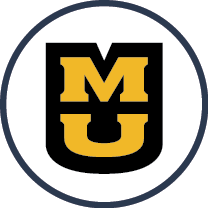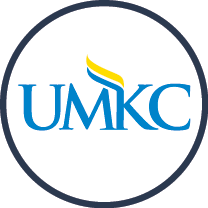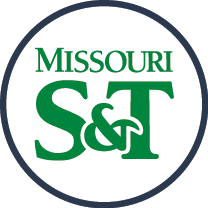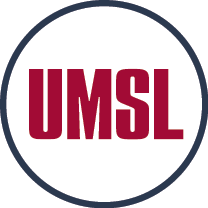Navigation
(PDF, 11MB)- АФУХСљКЯВЪЙйЭјПЊНБ Tripp Umbach
Summary information:
In November 2017, Tripp Umbach т a nationally recognized consulting firm т was retained by UM System to provide comprehensive analysis on the economic, employment and government revenues that arise from UM System operations and expenditures. The impact analysis was conducted to measure effects throughout the state of Missouri and each of its four campuses in Columbia, Kansas City, Rolla and St. Louis, as well as MU Extension and MU Health Care.
The influence that the UM System and the aforementioned entities have on the vitality of the economy within each region and the state include business volume impacts (capital expenditures, operational expenditures, salary data and state and regional business volumes); direct and indirect/induced employment; government revenue at the local and state levels; spending by employees and students in the local economy on goods and services; and visitor spending on the economy (wage premiums, job creation and etc.).
A brief summary of the overall impact of the UM System on the state of Missouri is outlined below; for full details, read report (PDF, 11MB).
Trouble viewing the video in your browser? .
Overview: The Impact of the UM System
The АФУХСљКЯВЪЙйЭјПЊНБ System (UM System) is a powerful engine for education, outreach and research, and plays an important role in the generation of economic impacts, employment and government revenue throughout the state. With four distinct campuses, a strong research footprint, two successful academic medical centers and a statewide extension organization, the UM System contributes significantly to regional and state economies.
- UM System generated more than $5.4 billion in economic impact for the state, which represents direct spending in Missouri ($2.1) and indirect spending that occurred as a result of the presence of UM System ($3.3B).
- UM System supported 34,169 full-time and part-time jobs throughout the state in FY17, and campus spending supported additional indirect jobs. In total, UM System supported 61,105 jobs in Missouri.
- UM System's $244.4 million total for in-state and local tax revenue reflects direct and indirect/induced tax payments in the state.
 АФУХСљКЯВЪЙйЭјПЊНБ-Columbia
АФУХСљКЯВЪЙйЭјПЊНБ-Columbia
АФУХСљКЯВЪЙйЭјПЊНБ-Columbia (MU) students represent every Missouri county, all 50 states and 120 countries. The stateтs largest university, it is one of only six public universities nationwide with a medical school, college of veterinary medicine and law school on the same campus. Publications, web-based services and extension offices and faculty members in every county provide the benefits of MU research to Missouriтs citizens.
MU's Impact on Missouri in FY17
- MU generated more than $3.9 billion in economic impact for the state, which represents direct spending in Missouri ($1.6B) and indirect spending that occurred as a result of the presence of MU ($2.3B).
- MU supported 28,687 full-time and part-time jobs throughout the state in FY17, and campus spending supported additional indirect jobs. In total, MU supported 46,855 jobs in Missouri.
- MUтs $117.4 million total for in-state and local tax revenue reflects direct and indirect/induced tax payments in the state.
 АФУХСљКЯВЪЙйЭјПЊНБ-Kansas City
АФУХСљКЯВЪЙйЭјПЊНБ-Kansas City
The АФУХСљКЯВЪЙйЭјПЊНБ-Kansas City (UMKC), originally chartered as University of Kansas City in 1929 as a private institution, is now the largest comprehensive, fully accredited university in the Kansas City area. With a 14:1 student-to-faculty ratio, students from all 50 states and more than 85 countries, UMKC has earned national and international attention for the quality of its faculty, students, research and community leadership.
UMKC's Impact on Missouri in FY17
- UMKC generated more than $523 million in economic impact for the state, which represents direct spending in Missouri ($200 million) and indirect spending that occurred as a result of the presence of UMKC ($323 million).
- UMKC directly supported 3,841 full-time and part-time jobs throughout the state in FY17, and campus spending supported additional indirect jobs. In total, the presence of UMKC supported 6,773 jobs in Missouri.
- UMKCтs total of $22,635,212 in-state and local tax revenue reflects direct and indirect/induced tax payments throughout Missouri.
 Missouri University of Science and Technology
Missouri University of Science and Technology
Missouri University of Science and Technology (Missouri S&T) puts a strong focus on innovation and research. With 6,900 undergraduate and 1,900 graduate students from all 50 states and 60 countries, the campus offers 98 degree programs in 39 areas of study such as computer science, business, engineering, humanities and liberal arts.
S&T's Impact on Missouri in FY17
- Missouri S&T generated more than $404 million in economic impact for the state, which represents direct spending in Missouri ($162 million) and indirect spending that occurred as a result of the presence of Missouri S&T ($242 million).
- Missouri S&T directly supported 3,419 full-time and part-time jobs throughout the state in FY17, and campus spending supported additional indirect jobs. In total, the presence of Missouri S&T supported 5,549 jobs in Missouri.
- Missouri S&Tтs total of $16,577,115 in-state and local tax revenue reflects direct and indirect/induced tax payments throughout Missouri.
 АФУХСљКЯВЪЙйЭјПЊНБ-St. Louis
АФУХСљКЯВЪЙйЭјПЊНБ-St. Louis
The АФУХСљКЯВЪЙйЭјПЊНБ-St. Louis (UMSL) is the largest public research university in eastern Missouri, with nearly 17,000 students. It provides excellent learning experiences and leadership opportunities to a diverse student body whose influence on the region upon graduation is immense. While UMSL graduates can be found in all 50 states and 63 countries, their greatest impact is felt in the St. Louis area, where more than 70,000 UMSL alumni call the region home.
UMSL's Impact on Missouri in FY17
- UMSL generated more than $363 million in economic impact for the state, which represents direct spending in Missouri ($155 million) and indirect spending that occurred as a result
of the presence of UMSL ($208 million). - UMSL directly supported 2,872 full-time and part-time jobs throughout the state in FY17, and campus spending supported additional indirect jobs. In total, the presence of
UMSL supported 4,635 jobs in Missouri. - UMSLтs total of $14,837,189 in-state and local tax revenue reflects direct and indirect/induced tax payments throughout Missouri.
АФУХСљКЯВЪЙйЭјПЊНБ Extension
АФУХСљКЯВЪЙйЭјПЊНБ Extension (MU Extension) helps citizens across the state gain practical knowledge, understand and adapt to change, solve problems and make informed decisions. Using University research-based knowledge, MU Extension addresses a wide range of needs that fall into three grand challenges for the state of Missouri: economic opportunity, educational excellence and healthy futures. Every year, more than one million Missourians turn to MU Extension for education and support specifically designed to respond to current needs, including agriculture and the environment; business and community development; family and youth development; and health and safety.
MU Extension's Impact on Missouri in FY17
- MU Extension operations support faculty working in all 114 counties of the state and the City of St. Louis. Economic impact of MU Extension operations within the UM System totaled $106 million.
- A report, conducted by TEConomy Partners using FY 2016 data, estimated that for every dollar invested in MU Extension, $11 of public value is returned. The total returned public value for MU Extension was estimated at $945 million.
- For every $1 invested in the Business Development Program in the past three years, the program returned $120 in economic impact for its clients in the form of increasing sales by more than $1.19 billion. The program has helped create or retain more than 29,021 jobs while attracting nearly $347 million in capital investments and $1.17 billion in government contracts for a total impact of $2.7 billion.
АФУХСљКЯВЪЙйЭјПЊНБ Health Care
АФУХСљКЯВЪЙйЭјПЊНБ Health Care (MU Health Care), as an academic health center, is home to groundbreaking research, making it an international health care destination. MU Health Care physicians help patients across Missouri and around the world receive leading-edge care. University researchers, scientists and physicians work together to provide bench-to-bedside treatments, giving patients access to truly personalized medicine based on factors as specific as the DNA of cancer tumors. Through access to MUтs research reactor, MU Health researchers are able to pursue innovative research and provide advanced, customized treatments to the people of Missouri and beyond.
MU Health Care's Impact on Missouri in FY17
- In FY17, the economic impact of MU Health Care totaled $899 million. The employment impacts of these activities supported over 8,900 jobs throughout the state.
- Nearly $645,000 of in-state and local government revenue generated in FY17 can be attributed to the activities of MU Health Care.
- In working with the MU School of Medicine, more than 680 faculty physicians and scientists educate more than 1,000 medical students, residents, fellows and others seeking advanced degrees, as well as more than 1,000 undergraduate students each semester.
АФУХСљКЯВЪЙйЭјПЊНБ Tripp Umbach
Tripp Umbach is a national leader in conducting economic impact studies, consultation, and communication services for a wide variety ofacademic clients including Boston University, Indiana University, Michigan State University, The Pennsylvania State University, The Ohio State University, University of Arizona, University of Michigan, University of Minnesota, the University of Pittsburgh, & the University of Virginia. TrippUmbach has provided consultation and economic impact analysis services to more than 300 clients in all regions of the United States since 1990.
Reviewed 2022-02-03